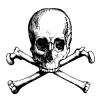Drinking Water Standards
Maximum Contaminant Levels (MCLs) for Public Drinking Water Supplies in New Jersey (as of 11/96)
Standards set under authority of the Safe Drinking Water Act are called Maximum Contaminant Levels (MCLs). An MCL is the highest amount of a specific contaminant allowed in the water delivered to any customer of a public water system. An MCL may be expressed in milligrams per liter (mg/l), which is the same for the purposes of water quality analysis as parts per million (ppm). The MCLs can also be expressed as micro-grams/ liter (ug/l) which is equivalent to parts per billion (ppb). One thousand micrograms per liter (1000 ug/l) is equivalent to one milligram per liter (1 mg/l). MCLs have been set by the EPA and the DEPE to provide a margin of safety to protect the public health.
Impurities in drinking water that are regulated and have an adverse health impact are grouped into five categories: inorganic chemical contaminants, organic chemical contaminants, microbiological contaminants, radiological contaminants, and turbidity.
The process of setting primary standards (MCLs) for drinking water contaminants is based on three criteria: (1) the contaminant causes adverse health effects; (2) instruments are available to detect it in drinking water; and (3) it is known to occur in drinking water.
Specific limits have not yet been set for every toxic, carcinogenic, or undesirable contaminant that might enter a public water supply. While the need for continued attention to chemical contaminants in water is recognized, the regulations are limited by available scientific and engineering data on which judgments of safety can be made.
The following Table lists the MCLs for public drinking water supplies in New Jersey (as of 11/96). The table combines both the federal and NJ Safe Drinking Water Act regulations. These regulations are subject to continuous change. You should contact the NJDEP - Bureau of Safe Drinking Water, CN 426, Trenton, NJ 08625, if you need more current information.
Susan Lance Program Associate in Water Quality Theodore B. Shelton, Ph.D. Specialist in Water Resources Management






